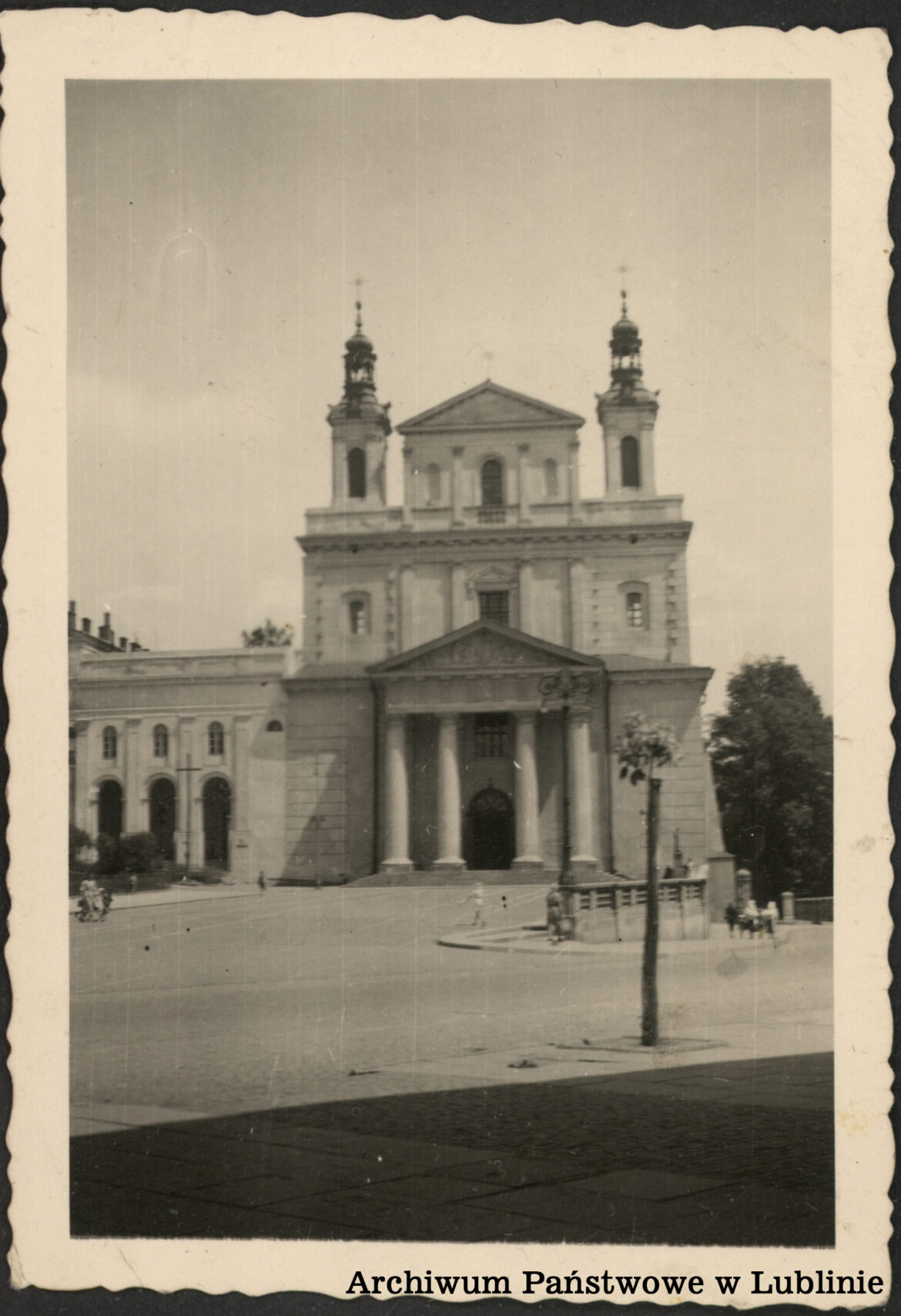On the Corpus Christi Day in Lublin (16 June 1949), a car with the head of the Security Service deliberately drove into people walking in a traditional procession. This fact led to local riots and the detention of many people by the communist authorities.
Between 1944 and 1947, the communists in Poland did not act openly against the Catholic Church. In the initial period of their rule, they tried to avoid open confrontations. On the contrary, they showed at least a semblance of approval for the Church’s activities. This was evidenced by the participation of representatives of the authorities of the Polish Committee of National Liberation (PKWN) and its subordinate army and even Soviet representatives in religious and state-religious ceremonies.
One such apparent gesture on the part of the communists was also the Lublin celebrations on 15 August 1944 to mark the Soldier’s Day on the 24th anniversary of the victory over the Bolsheviks in 1920 and the church feast of the Assumption of the Blessed Virgin Mary. On that day (15 August 1944), a solemn field mass celebrated by Father Tadeusz Fedorowicz, chaplain of the 4th Infantry Division, took place on the meadows by the Bystrzyca River. The mass was attended by Bolesław Bierut, Edward Osóbka-Morawski, General Michał Rola-Żymierski, General Zygmunt Berling. The Soviet part was represented by General Nikolai Bulganin, the official representative delegated by the PKWN. Incidentally, it is worth recalling that the Polish Army Day was celebrated on 15 August until 1947.
The participation of the communist authorities in those celebrations was not the only gesture, (illusory, as it later turned out), towards the Catholic Church. A few days later, a decision was made to resume the activities of the Catholic University of Lublin (KUL). Its consequence was the solemn inauguration of the academic year, which took place on Sunday, 12 November 1944. In addition to representatives of the PKWN, it was also attended by the Nikolai Bulganin. In addition, the communist authorities, led by Bronisław Bierut, attended a mass at the Carmelite church in 1945 to celebrate the 3rd of May Constitution.
The participation of government and military representatives in Corpus Christi processions throughout the country was also not uncommon, as can be seen by watching the 1945 Polish Chronicle release. Interestingly, the procession in Warsaw, which took place on 20 June 1946 and was led by the Primate of Poland, Cardinal August Hlond, included the Minister of Communications, Jan Rabanowski, and the Deputy Minister of National Defence, General Piotr Jaroszewicz. As the source stated, they assisted the Celebrant walking under the canopy, with units of the Polish Army also participating as an honour assist.
After the elections of 1947, which had been won because of pervasive falsifications, the communist authorities changed their policy towards the Catholic Church and ceased their apparent good relations with it, starting an open fight. Security apparatus, (UBT), was given a key task in this.
The change in this policy could also be observed locally. An important element of it was the fight for the “government of souls” of the younger generation. In April 1947, the head of the provincial structures of the UB in Lublin, Colonel Jan Tataj, forbade scouts to organise celebrations that month in connection with the day of their patron saint, St George. At the same time, the activities of youth organisations uncontrolled by the communist authorities were restricted, especially operated at the Catholic University of Lublin.
In 1949, the Lublin authorities, wanting to limit independent initiative among school youth, decided to prevent their participation in the celebrations of Corpus Christi, on 16 June. To this end, on the eve of the celebration, groups of young students from Lublin’s secondary schools were sent on excursions to forests near Lublin. They were to return from them on Thursday afternoon. The boys were to have lessons in military preparation and the girls in a sanitary course. The actual purpose was different – to prevent young people from taking part in the procession. In one of the schools, the Union of Lublin Grammar School, an attempt to organise a student protest was supposed to take place, but it did not take place due to the denunciation of one of the girls.
The procession itself, which was well attended by university students, was disrupted at 2 p.m. by a car with the head of the Lublin PUBP (Public Security Bureau) Józef Pilipczuk and two of his subordinates, which rammed into the participants who had been standing in Łokietek Square. This provocative move, described as such even by UB officers who later investigated the circumstances of the incident, was met with a reaction from the participants of the procession. The car was overturned, and the battered officers saved themselves by escaping with the help of militiamen. At 4 p.m., an additional mass was organised at Lublin Cathedral for schoolchildren returning to the city.
The communist authorities decided to punish the participants in the incidents during the Corpus Christi procession. According to historians, around 20 people were detained and sentenced. Some of the sentences were 5-6 years in prison. A list of 300 students was drawn up with the aim of expelling them from Lublin’s universities, later reduced to 100. The main perpetrator of the provocation, the head of the PUBP, was punished with only 3 days of house arrest.





